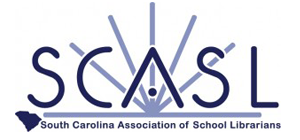BIPOC Scholarship Award
This scholarship is awarded to a library science student or current librarian who identifies as a member of the Black, Indigenous, or People of Color (BIPOC) community. The funds are intended to address systemic barriers to librarianship. Funds can be used to help pay for a graduate course or for professional development opportunities. Nominees and honorees must be SCASL members and may be a current SLIS student in South Carolina or employed school librarian in South Carolina. An individual may win more than once but not in consecutive years.
Recipients will demonstrate a commitment to social justice by serving historically underrepresented groups through innovative school library programming and services utilizing sound principles of diversity, equity, and inclusion.
The SCASL BIPOC Scholarship Award of $500 is awarded to help reimburse/fund the cost of one of the following:
-
College course taken for credit to improve job performance
-
Graduate degree in library and information science
-
Expenses related to attending a national conference (e.g. AASL/ALA/NCTE or others) within the previous 12 months or in the next 12 months
-
Expenses related to attending a professional development workshop within the previous 12 months or in the next 12 months=
This award seeks to encourage and provide financial support to SCASL members from underserved or underrepresented ethnic and racial groups. The purpose is to increase the number and quality of BIPOC school library media personnel in South Carolina and to assist with professional development/conference costs of BIPOC school librarians in South Carolina.
The following guidelines apply to the recipient of this award.
-
The recipient shall be a member of the South Carolina Association of School Librarians.
-
The recipient shall be a current student enrolled in a Master’s of Library and Information Science degree program or a school librarian currently employed in a public or private school in South Carolina.
-
Applicants must identify as BIPOC (American Indian/Alaska Native, Indigenous Peoples, Asian, Black/African American, Hispanic/Latinx, Middle Eastern or North African, and/or Native Hawaiian/Other Pacific Islander)
-
An individual recipient may be selected more than once but not in consecutive years
-
Recipients will write an article following completion of a course, conference, or workshop to be published in the SCASL Messenger and may consider submitting a SCASL conference session proposal.
Application: Copy the table below and complete in Google Docs. Include the nominee's name in the title of the doc. Email completed application link to prof.awards@scasl.net by the first Friday in December. Be sure to make the link viewable to all users. No late submissions will be accepted.
|
Name of Nominee, position, email address (personal), and phone number (personal)
|
|
|
Please indicate how you identify as a member of the BIPOC community.
|
|
|
If currently working as a school librarian in SC: School name, School District, Name of MLIS degree-granting institution and year earned
|
|
|
If a current SLIS student: when did you begin your degree and when do you anticipate graduating?
|
|
|
Question #1: Explain why you think BIPOC representation in the school library profession is important and how being a member of the BIPOC community influences your work (current or future) in the school librarian profession. You may include examples from work previously completed or currently engaged in. Responses limited to 800 words.
|
|
Question #2: Describe in detail how you plan to utilize the scholarship funds to address systemic barriers in school librarianship to benefit your community. Include names of specific courses, conferences, professional development opportunities, etc. Responses limited to 800 words.
|
|
